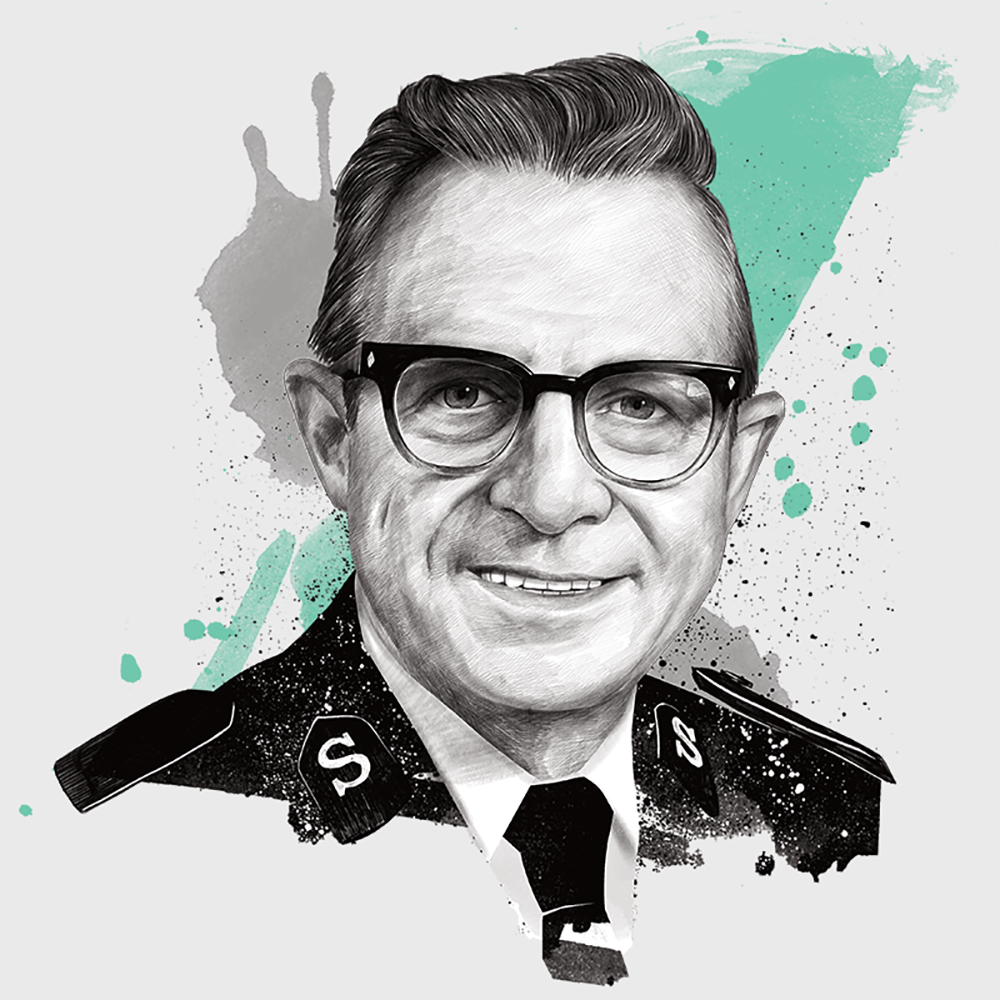Charles Wesley
Explore how John Wesley's brother Charles may have provided the actual driving force behind Methodism.
December 18, 1707 – March 29, 1788
While it is John Wesley who is known as the Father of Methodism (The Salvation Army’s own theological tradition), there’s a case to be made that it was his brother Charles who provided the driving force behind the movement. The “Greatest Hymn Writer of All Time” laid down the Wesleyan theology into songs and hymns that provided the early Methodists with the contagious joy of the Lord. Chuck’s hymns are so good, modern worship songs just keep taking his words and repackaging them. “Amazing Love” took his chorus of “And Can it Be” and “O Church Arise” is eerily close to “Soldiers of Christ, Arise!”
“Hark! The Herald Angels Sing,” “And Can it Be,” “O For a Thousand Tongues to Sing!” “Jesus, Lover of my Soul,” and “Soldiers of Christ, Arise!” are just a snippet of the nearly nine thousand hymns and psalms that Charles com- posed in his lifetime. Nine thousand! John Wesley once described his broth- er’s songs as “a distinct and full account of scriptural Christianity.” And I struggle to finish “Roses are red…” poems!
But like most origin stories, Charles was not always the prolific hymn writer that we remember him as. Born the 18th of 19 children, he arrived prematurely and almost didn’t make it past his first month. He studied at Oxford, but was so frustrated by the spiritual apathy of the school that he started a “Holy Club.” In the years prior to his songwriting, he was a failed statesman (a skilled political fig- ure) in the British Colonies. Charles trav- eled to America—to the colony in Sa- vannah, Georgia, in 1735. There he served as the magistrate for Indian Af- fairs. He was, shall we say, unsuccessful. He was categorically rejected by the Na- tive Americans and the settlers, and returned to Britain, frustrated by what he had experienced. Spiritually lost and frustrated by failure, Charles was in need of a fresh anointing.
It was back in Britain that Charles had what he describes as, “a true
So What?
Charles’ life was full of challenges, disappointments, failures, and victories. While Charles may have wanted his tenure as a statesman to have been longer and more successful, I would hate to see what our church’s songbook would look like without Charles’ name listed on every other page. God’s entire plan for our lives is never – or at least rarely – laid out for us all at once. The Lord is already preparing you for your future ministries! How can the Holy Spirit use your passions for the Kingdom? Is it time for a fresh anointing on your life?
Illustration by Paul Ryding



